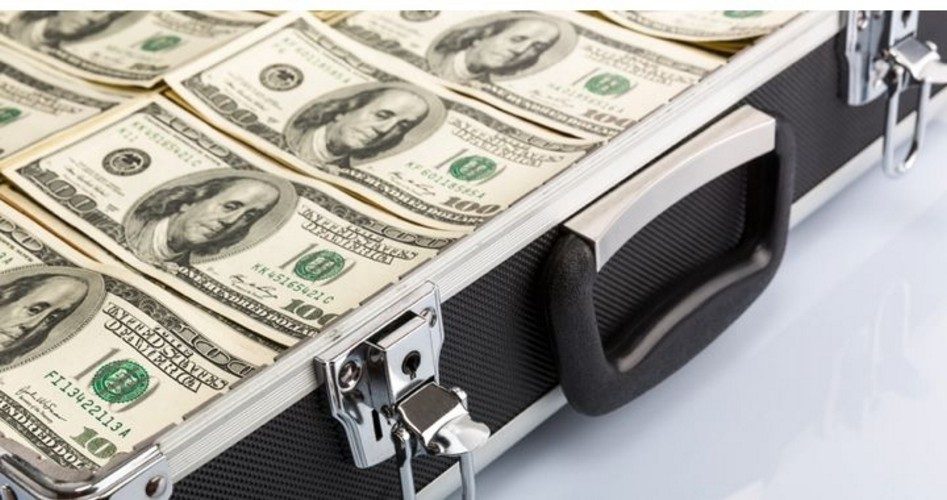
A cartel of 14 U.S. and European banking interests is working behind the scenes to tinker with the Transatlantic Trade and Investment Partnership (TTIP) agreement and remove any banking regulations designed to avoid a repeat of the global financial meltdown that began with 2008’s taxpayer-funded bailouts of big banks.
The Transatlantic Financial Regulatory Coherence Coalition, the creation of which was announced on June 7, claims it seeks to create “regulatory coherence” across the United States and the European Union (EU). The group considers the TTIP the best way to package and enforce this transatlantic integration of investment and banking laws without going through the longer, messier process of passing appropriate laws in all the TTIP members nations’ individual governments.
Should negotiators continue opposing the coalition’s efforts at reworking the regulatory language of the TTIP agreement, the effect could, according to a Bloomberg report, “hurt those [U.S. companies] such as JPMorgan Chase & Co. and American Express Co.”
{modulepos inner_text_ad}
Those working to protect the privileges of the massive multinational banking and financial services corporations point to the “harmonization” of U.S. and EU laws that would make it easier for these business behemoths to carry on their work without the hassle of conforming to a patchwork of regulatory schemes across the TTIP agreement’s applicable area.
“It means the rules that apply in the EU and the rules that apply in the United States are consistent enough that they do not negatively impact cross-border transatlantic business. So if you’re operating in the European Union in the financial services industry, you’re still able to operate in the United States without having a completely different business model or operations,” said Peter Matheson, managing director at the Securities Industry and Financial Markets Association, a coalition member, as quoted in a Bloomberg BNA story.
Americans and Europeans wary of the seemingly tireless push to integrate the economies of these very disparate nations readily recognize words such as “harmonization” and “regulatory coherence” as nothing less than euphemisms for integration: the bane of sovereignty and liberty.
Integration is a word that is painful to the ears of constitutionalists and those unwilling to surrender U.S. sovereignty to a committee of globalists who are unelected by the American people and unaccountable to them. Integration is an internationalist tool for subordinating American law to the globalist bureaucracy at the United Nations.
Economic and political integration will push the once independent United States of America into yet another collectivist bloc that will facilitate the complete dissolution of our country and our states into no more than subordinate outposts of a one-world government.
As The New American’s Senior Editor William Jasper wrote, the TTIP “has been designed to follow the EU example of relentless widening and deepening, constantly eroding national sovereignty, while building ‘transnational governance’ that is not restrained by the checks and balances of national constitutions.”
All of this is music to the ears of the coalition of U.S. and European financial concerns that want to wipe out any obstacle between them and absolute control over the world’s wealth, especially that portion belonging to American taxpayers.
A bit more on that in a minute. First, the coalition’s goals, as set out in the Bloomberg analysis: “This is a very important time. And we think this issue is as vitally important as we did in 2013,” when TTIP negotiations began, Matheson said, adding, “So we thought it would be useful to bring ourselves together in a slightly more formal way to be in a position to more efficiently and effectively have that discussion.”
To overcome existing impediments to transboundary financial activity, the coalition will push for TTIP language to ensure early-stage discussions on policy matters, facilitate discussion concerning future policymaking and regulatory developments, and generally advocate for greater accountability and transparency.
Matthew Ekberg, Institute of International Finance senior policy advisor for regulatory affairs, said in a June 7 e-mail sent to Bloomberg BNA, “As negotiations move into the next critical stage, we felt it important to pool our resources through this Coalition to educate on the benefits of a comprehensive approach to financial services within TTIP.”
Ekberg, whose organization is a coalition member, continued in his statement, “All aspects of the negotiations are still in discussion and regulatory coherence and market access are critical for a complete agreement. As such, we believe the time is right to continue actively engaging policy makers on both sides of the Atlantic on these important issues.”
There is little doubt that the phrase used by Bloomberg to summarize the coalition’s aims — “overcoming” existing “impediments to transboundary financial activity” — is a less threatening way of saying “we want to get rid of U.S. sovereignty and replace it with obedience to global bureaucrats.”
Now, a look at the roster of members of the coalition:
The Association for Financial Markets in Europe
American Chamber of Commerce to the European Union
The London and New York units of BritishAmerican Business Federal Association of (German) Securities Trading Firms European Banking Federation
European Services Forum
Financial Services Forum
Financial Services Roundtable
Institute of International Bankers
Institute of International Finance
Securities Industry and Financial Markets Association
TheCityUK
Trans-Atlantic Business Council
U.S. Chamber of Commerce
Opponents of the plan to effectively repeal current domestic regulations that would prohibit the aims of the coalition (and the banks and financial services corporations that stand behind it) point out the potential for a repeat of the bank bailouts that began in 2008 and nearly caused a second Great Depression.
Mark Dearn, an anti-TTIP campaigner, declared, “The European Commission has learned nothing from the 2008 financial crisis. It’s a scandal that the finance sector, backed by the European Commission, is trying to use TTIP to scrap rules and regulations designed to end ‘too big to fail’ and stop taxpayers footing the bill for greedy and reckless bankers.”
And there it is — the second prong of the coalition’s pincer attack on the U.S. Constitution and the sovereignty of the American people: removing any obstacle between the banks, the billionaires who own and run them, and the income of American workers!
“Too big to fail,” it seems, was only the beginning. Should the coalition get its way at the next round of TTIP negotiations, giant global banks will be too big to even be questioned.
Finally, now that we know of the plan of the global banking industry to make an end-run around regulations designed to shield the American taxpayer from being fleeced again by the financial sector, it is important to remind ourselves of just who benefited from the last bailout and how much taxpayer money these billionaires pilfered to pay for their fiscal follies.
The following list (not an exhaustive catalog of the bailout recipients) is taken from an article penned by William Jasper for The New American:
Citigroup — received more than $2.5 trillion;
Morgan Stanley — received more than $2.04 trillion;
Merrill Lynch — received more than $1.9 trillion;
Bank of America — received more than $1.3 trillion;
Barclays — received more than $868 billion;
Bear Stearns — received more than $853 billion;
Goldman Sachs — received more than $814 billion.
JPMorgan Chase — received more than $390 billion.
In the case of JPMorgan Chase, one researcher reported, “To be precise, JPMorgan receives a government subsidy worth about $14 billion a year, according to research published by the International Monetary Fund and our own analysis of bank balance sheets. The money helps the bank pay big salaries and bonuses. More important, it distorts markets, fueling crises such as the recent subprime-lending disaster and the sovereign-debt debacle that is now threatening to destroy the euro and sink the global economy.”
The next round of TTIP negotiations (the 14th) begins in July in Brussels.



